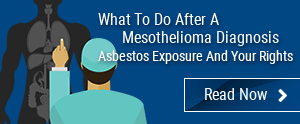If your doctors have broken the news that you are suffering from pleural mesothelioma, you may be feeling confused and scared. It is a serious cancer that develops in the lining around your lungs and chest.
Unfortunately, pleural mesothelioma cannot be cured, but since it can manifest in more than one way, you could find a treatment that extends your life and makes you feel better.
Here is what you should know about the three main kinds of pleural mesothelioma after a recent diagnosis.
1. The most common form
Most people (about 60 to 80%) diagnosed with mesothelioma have the “epithelioid” type. Like a sluggish but steady turtle, it develops much slower than other forms. The good news is it is usually easier for doctors to fight the illness with chemotherapy and radiation.
2. The tough-to-treat form
A rare form, “sarcomatoid” pleural mesothelioma affects a small pool (about 10%) of people. Unfortunately, it grows incredibly fast and does not always get better with current treatments. Doctors are working to find ways to beat it, but for now, it remains a tricky villain.
3. The mix-and-match form
Known as “biphasic” pleural mesothelioma, this form of the illness causes patients to develop both sarcomatoid and epithelioid cells. If the sarcomatoid cells grow more than the others, your future may be fraught with medical complications.
Getting a diagnosis is just the beginning of your mesothelioma journey. Learning more empowers you to talk to your doctor and understand your healthcare options.
On the legal side of things, you may be entitled to a monetary award for your pleural mesothelioma, which can help improve your quality of life. Talk with someone from a reputable Ohio law firm to learn about your options.


